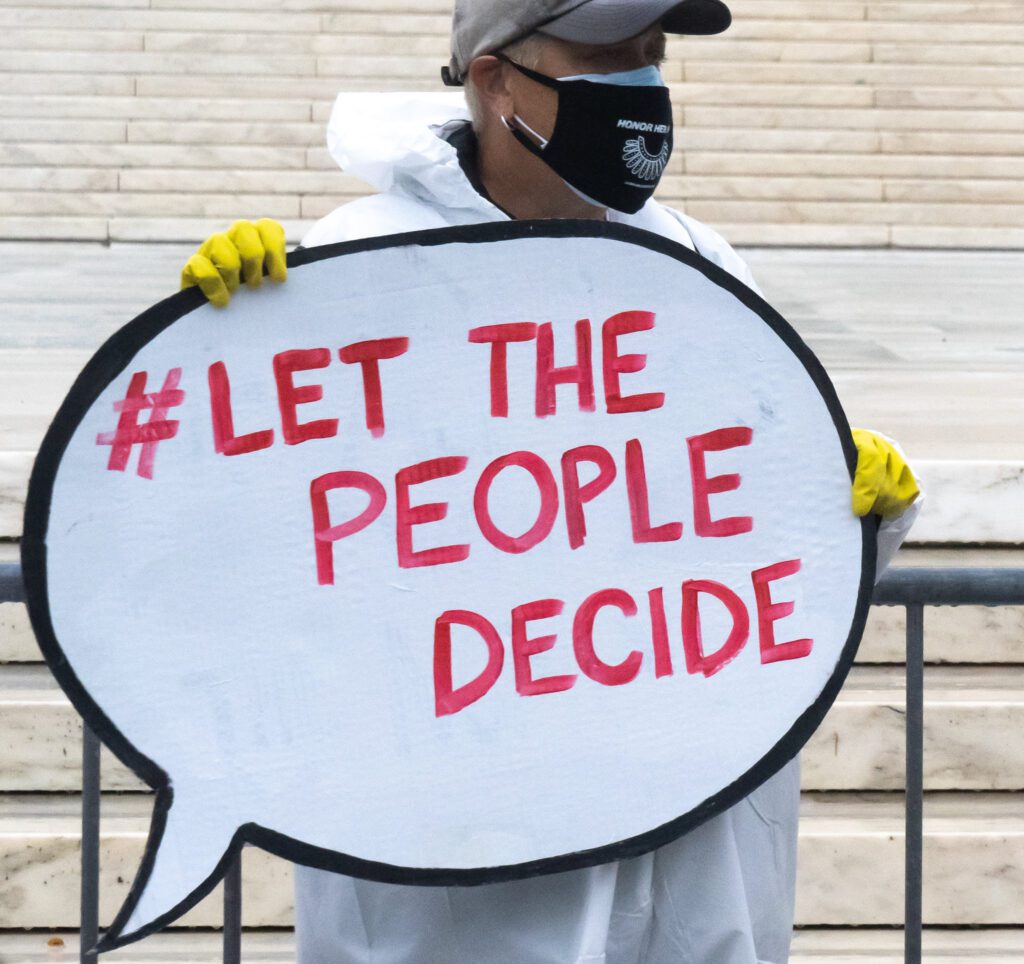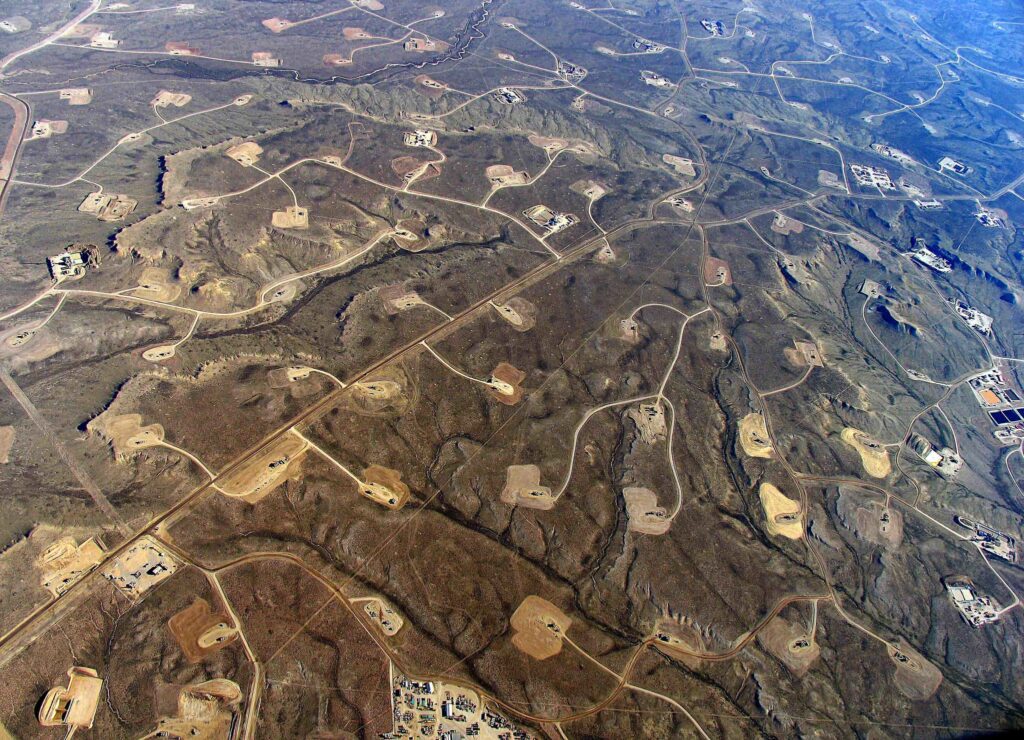


By Reynard Loki, Independent Media Institute
6 min read
The steady erosion of Indigenous rights continues under Trump as the Environmental Protection Agency (EPA) is—at the request of Oklahoma’s Republican governor J. Kevin Stitt—relinquishing its oversight of a number of environmental issues across 38 federally recognized tribes’ lands to the state, as Rebecca Beitsch reports for the Hill.
The July 22 request invoked for the first time a provision in a 2005 transportation bill sponsored by Sen. James Inhofe (R-Okla.) giving Oklahoma the oversight of environmental issues “in the areas of the state that are in Indian country, without any further demonstration of authority by the state.” In an October 1 letter to Stitt, EPA Administrator Andrew Wheeler listed several federal authorities mandated under the Clean Air Act, Clean Water Act and Safe Drinking Water Act that will now be overseen by Oklahoma.
Cherokee Nation Principal Chief Chuck Hoskin Jr. criticized the move as a “knee-jerk reaction to curtail tribal jurisdiction [that] is not productive.”
“After over 500 years of oppression, lies, genocide, ecocide, and broken treaties, we should have expected the EPA ruling in favor of racist Governor Stitt of Oklahoma, yet it still stings,” Casey Camp-Horinek, elder and hereditary drumkeeper of the Ponca Tribe, said in a statement. “Under the Trump administration, destroying all environmental protection has been ramped up to give the fossil fuel industry life support as it takes its last dying breath.”
The move is a gift to the fossil fuel and agriculture industries, both of which wanted to avoid having to consult tribal governments about environmental issues related to fracking, the dumping of hazardous waste and factory farm pollution runoff. Oklahoma has a cozy relationship with the dirty fuel interests, being one of only 13 states that export more energy than they import. Indigenous lands will now be a dumping ground for a long list of poisonous waste and airborne pollutants, including smog, lead, asbestos, glyphosate and nitrates, which threaten public health and natural ecosystems.
Brook Simmons, president of the Petroleum Alliance of Oklahoma, an oil and gas industry trade group, expressed concern that the landmark 2020 Supreme Court ruling in McGirt v. Oklahoma, which made the prosecution of crimes committed on tribal lands a matter for federal, not state, courts, could lead to a patchwork of tribal environmental regulations across Oklahoma. “The EPA decision was particularly welcomed by the state’s oil and gas industry,” reported Sean Murphy of the Republic.
“EPA’s letter grants Oklahoma’s request to administer the State’s EPA-approved environmental regulatory programs in certain areas of Indian country. EPA’s letter resolves ambiguity and essentially preserves the regulatory status quo in Oklahoma,” EPA spokesman James Hewitt said in a statement. “Additionally, if any tribe wants to apply for regulatory oversight of these environmental programs, then they can apply through EPA’s Treatment as a State process,” he added.
Stitt defended his request to the EPA, saying in a statement, “This approval helps to better protect public health and our environment by ensuring certainty and one consistent set of regulations for all citizens of Oklahoma, including those who are also citizens of one of Oklahoma’s federally recognized Tribes.”
“It’s disappointing the Cherokee Nation’s request that EPA consult individually with affected Oklahoma tribes was ignored,” said Hoskin. “Unfortunately, the governor’s decision to invoke a 2005 federal law ignores the longstanding relationships between state agencies and the Cherokee Nation.”
“The underlying law is a one-section provision surreptitiously inserted as a midnight rider in the massive (Safe, Accountable, Flexible, Efficient Transportation Equity Act) of 2005 that treats Oklahoma tribes differently than other tribes throughout the United States,” the Muscogee (Creek) Nation said in a statement. “Like the SAFETEA Act itself, this was a swift move meant to circumvent the federal government’s trust, duty and obligation to consult with the tribal nations concerned.”
- Sign the petition to tell the EPA it must revert environmental regulatory control back to the tribes living on these lands.
Letter to the editor…

An EFL reader replies to “The Terrible True Cost of Milk, Cheese, Butter and Ice Cream,” by Reynard Loki, October 20, 2020:
“I have been a vegan for 20 plus years because of the terrible abuse towards sweet animals like cows, sheep and chickens. I thank you for getting this information out to everyone. Animals deserve nothing less. We must change our farming industry. We owe it to animals to stop the cruelty, because it is well researched that they feel pain just as we do. My heart goes out to all the dairy cows, to the female pigs who are crated and just have to keep birthing piglets, and to the many chickens who live in crowded disgusting conditions. I am 73 and was raised in the U.K. by my mom and dad who loved animals. I believe that if schools gave young children the opportunity to learn about how animals are like us, and how they have feelings, we could end a lot of the pain endured daily by not only farm animals but by all animals. Circuses have abused large animals for decades and still go on in spite of activism. Again, thanks for keeping information out there. Too many people are ignorant of facts.”
—Ann Marwick, Chapel Hill, North Carolina
Cause for concern…

- With Justice Barrett, a tectonic court shift on the environment (Beth Gardiner, Yale Environment 360)
- White House releases new plan for seismic tests in Arctic Refuge (Henry Fountain, The New York Times)
- Trump rollbacks create pollution nightmare in districts and states of Congressmembers overseeing EPA (Brian Kahn, Earther)
- Natural disasters quicken an already precipitous global loss of species (The Economist)
- California ranchers, activists face off over plan to cull beloved Tule elk herd (Katelyn Weisbrod, InsideClimate News)
Round of applause…

- Humpback whales have made a remarkable recovery, giving us hope for the planet (Dr. Kirsten Thompson, TIME)
- Meet “Veggie Mijas,” the Latinx organization decolonizing veganism (Andrea Devoto, Thrillist)
- Deep-sea corals get new protections in the Gulf of Mexico (Tristan Baurick, The Times-Picayune)
- To stop a wind turbine from harming birds, paint it black (Jethro George Gauld, National Interest)
- 11 states urge EPA to toughen planned airplane emissions rules (David Shepardson, Reuters)
Parting thought…

When all the trees have been cut down,
when all the animals have been hunted,
when all the waters are polluted,
when all the air is unsafe to breathe,
only then will you discover you cannot eat money.
—Cree prophecy
Earth | Food | Life (EFL) explores the critical and often interconnected issues facing the climate/environment, food/agriculture and nature/animal rights, and champions action; specifically, how responsible citizens, voters and consumers can help put society on an ethical path of sustainability that respects the rights of all species who call this planet home. EFL emphasizes the idea that everything is connected, so every decision matters.
Click here to support the work of EFL and the Independent Media Institute.
Questions, comments, suggestions, submissions? Contact EFL editor Reynard Loki at [email protected]. Follow EFL on Twitter @EarthFoodLife.